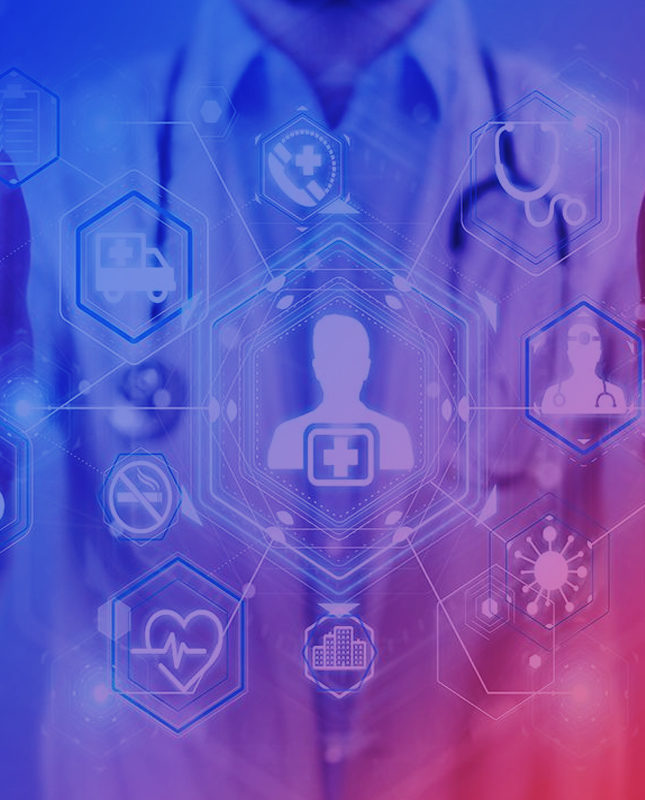
17 Mar Digital Transformation in Healthcare
We believe consumer health technologies — apps, wearables, self-diagnosis tools — have the potential to strengthen the patient-physician connection and improve health outcomes.
Dr. Glen Stream
The healthcare industry has been a wee bit lackadaisical in catching up with the digital zeitgeist. It needs to go with the flow and keep pace with the digital revolution that would provide comprehensive and sustainable healthcare solutions for the future. Let’s look at some of the ways by which healthcare can be digitised for the long-term.
The availability of large amounts of heterogeneous data presents huge challenges as well as opportunities in the field of healthcare which remains unexplored and under-utilised due to operational issues. The use of digital technologies like big data and data analytics helps in mitigating such challenges by providing clinical assessment through gathering and sharing large amounts of information about individual patient health and genetic profiling.
Digital technologies like image and signal based processing and genomics can be used to develop primary healthcare through interoperability by detecting the underlying disease trends and altering the course of healing and therapeutic approach. Healthcare needs to recognise that patient data is a valuable asset and learn to manage data effectively by building a robust strategic framework for data privacy and safeguarding against any threats and vulnerabilities.
Electronic health records of patients were erstwhile recorded on papers and maintained in a physical form by hospitals and medical institutions. The advent of Artificial Intelligence has enabled healthcare clinicians to leverage on high end clinical decision support systems programmed with fuzzy logic and algorithms that can provide diagnosis and deliver treatment outcomes integrated with Machine Learning.
AI would ease the process of decision making and generate the much needed information in real time for healthcare professionals, policymakers to enhance the quality of patient engagement and reduce the administrative burn out . Healthcare needs to foster a culture of transparency and collaboration and policy frameworks need to be built for building governance protocols amongst developers and consumers. Incentivising the adoption of AI can lead to enhanced absorption rates and faster realisation of low hanging fruits.
AI would also help in delivering in the AI value chain by deepening the connection between healthcare teams and patients through remote monitoring and patient empowerment resulting in personalised care and comfort. In addition to improving population health, AI would also enhance access to healthcare and help in optimisation of patient health through clinical surveillance and reducing their cognitive burdens. Technologies like tele-consultation and home monitoring would go a long way in delivering qualitative healthcare to patients at their doorstep promoting inclusivity and enhancing patient morale. This is the human side of digitalization which depends on the relationship between the patients and healthcare providers.
Adoption of Learning Health Systems in healthcare is still in a state of infancy and clinicians are yet to adopt this methodology in their care routine. Learning Health Systems is one of the major advancements in digital computing that aims to achieve health equity through collaborative healthcare and promoting good health. It requires consistent efforts and commitment on behalf of the leadership team to institutionalise and embed a culture of transformation in Healthcare for achieving its long term objectives.
Conclusion
We at Xforia technologies have a dedicated team focused on meeting the expectations of our clients through operational excellence and superior service delivery in Healthcare.
